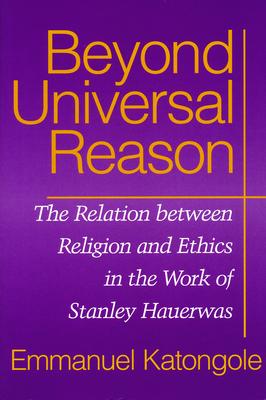In The Peaceable Kingdom Stanley Hauerwas claims that "to begin by asking what is the relation between theology and ethics is to have already made a mistake." Hauerwas's claim, and his contribution toward a socially constituted and historically embodied account of the moral life and moral reason, are often charged with sectarianism, relativism, and tribalism. Emmanuel Katongole defends Hauerwas's dismissal of the traditional philosophical "problem" of the relation between ethics and religion. It is, he argues, part of Hauerwas's wider attempt to set aside the dominant Kantian moral tradition. Standard fare in moral philosophy, inspired by that tradition, fosters a highly formal, ahistorical view of ethics that does not do justice to our experience of ourselves as moral agents.

Beyond Universal Reason: The Relation between Religion and Ethics in the Work of Stanley Hauerwas
In The Peaceable Kingdom Stanley Hauerwas claims that "to begin by asking what is the relation between theology and ethics is to have already made a mistake." Hauerwas's claim, and his contribution toward a socially constituted and historically embodied account of the moral life and moral reason, are often charged with sectarianism, relativism, and tribalism. Emmanuel Katongole defends Hauerwas's dismissal of the traditional philosophical "problem" of the relation between ethics and religion. It is, he argues, part of Hauerwas's wider attempt to set aside the dominant Kantian moral tradition. Standard fare in moral philosophy, inspired by that tradition, fosters a highly formal, ahistorical view of ethics that does not do justice to our experience of ourselves as moral agents.